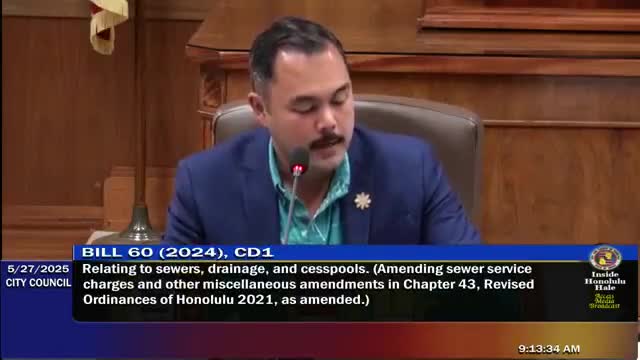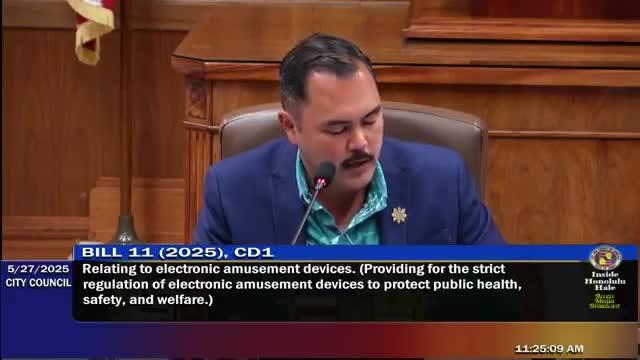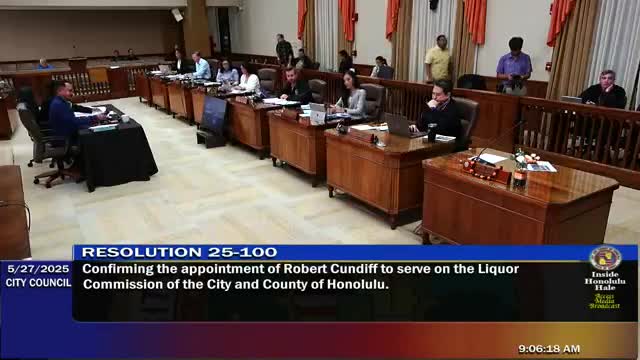Article not found
This article is no longer available. But don't worry—we've gathered other articles that discuss the same topic.

Council committee advances multi‑year sewer rate plan after lengthy debate over consent decree, rebates and bond financing

Council advances tighter rules for electronic amusement devices and boosts tools to address illegal game rooms

